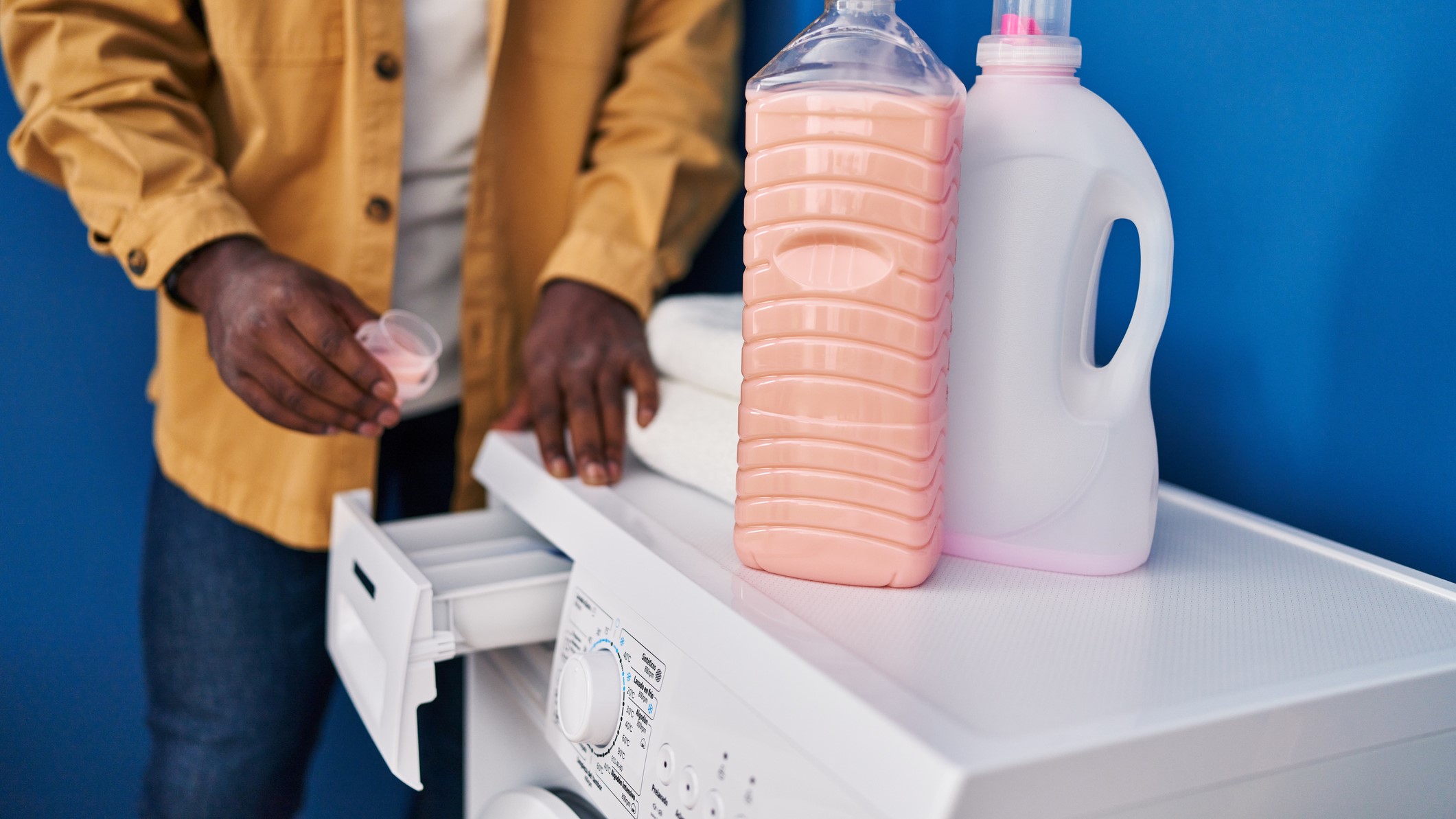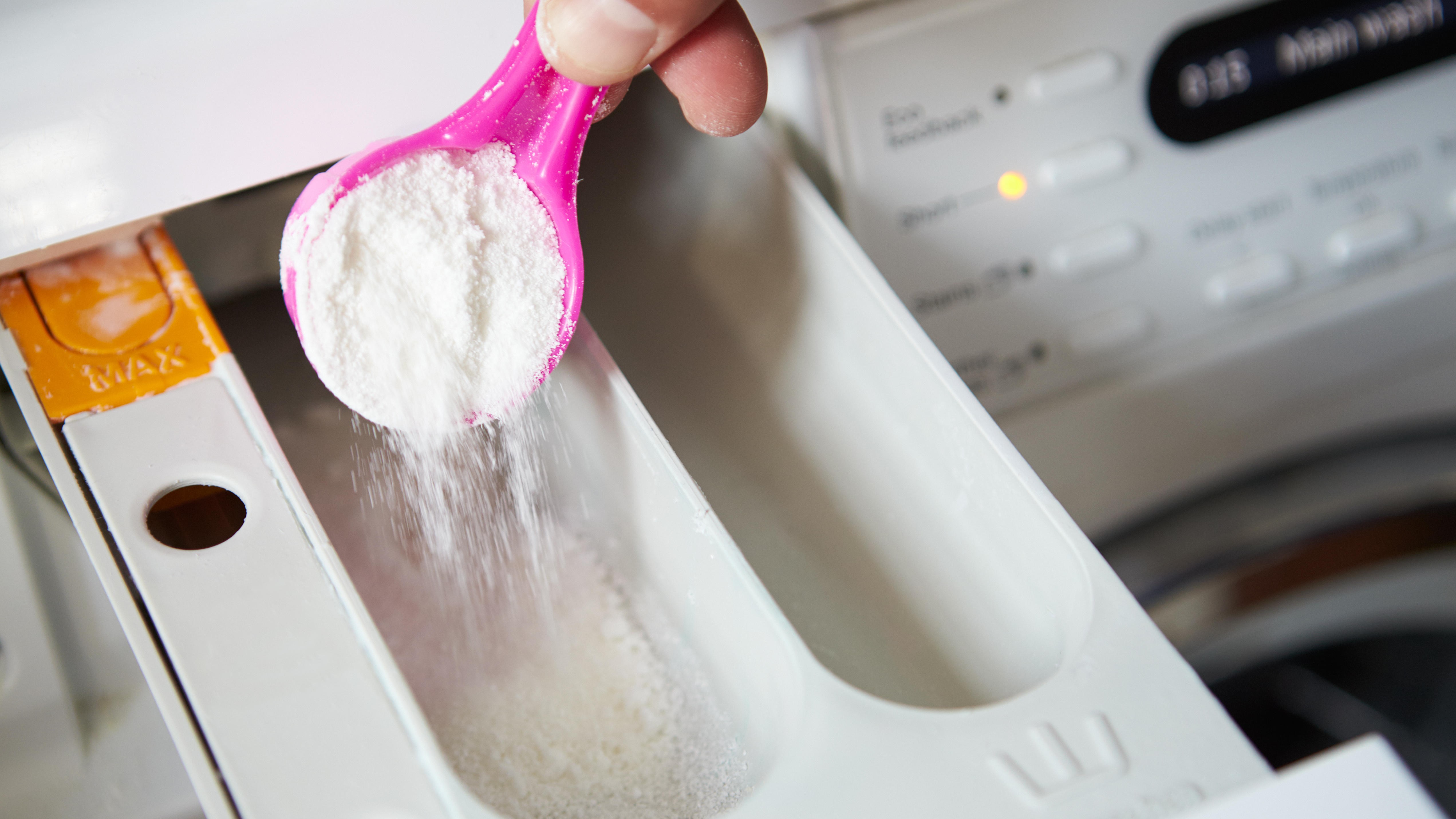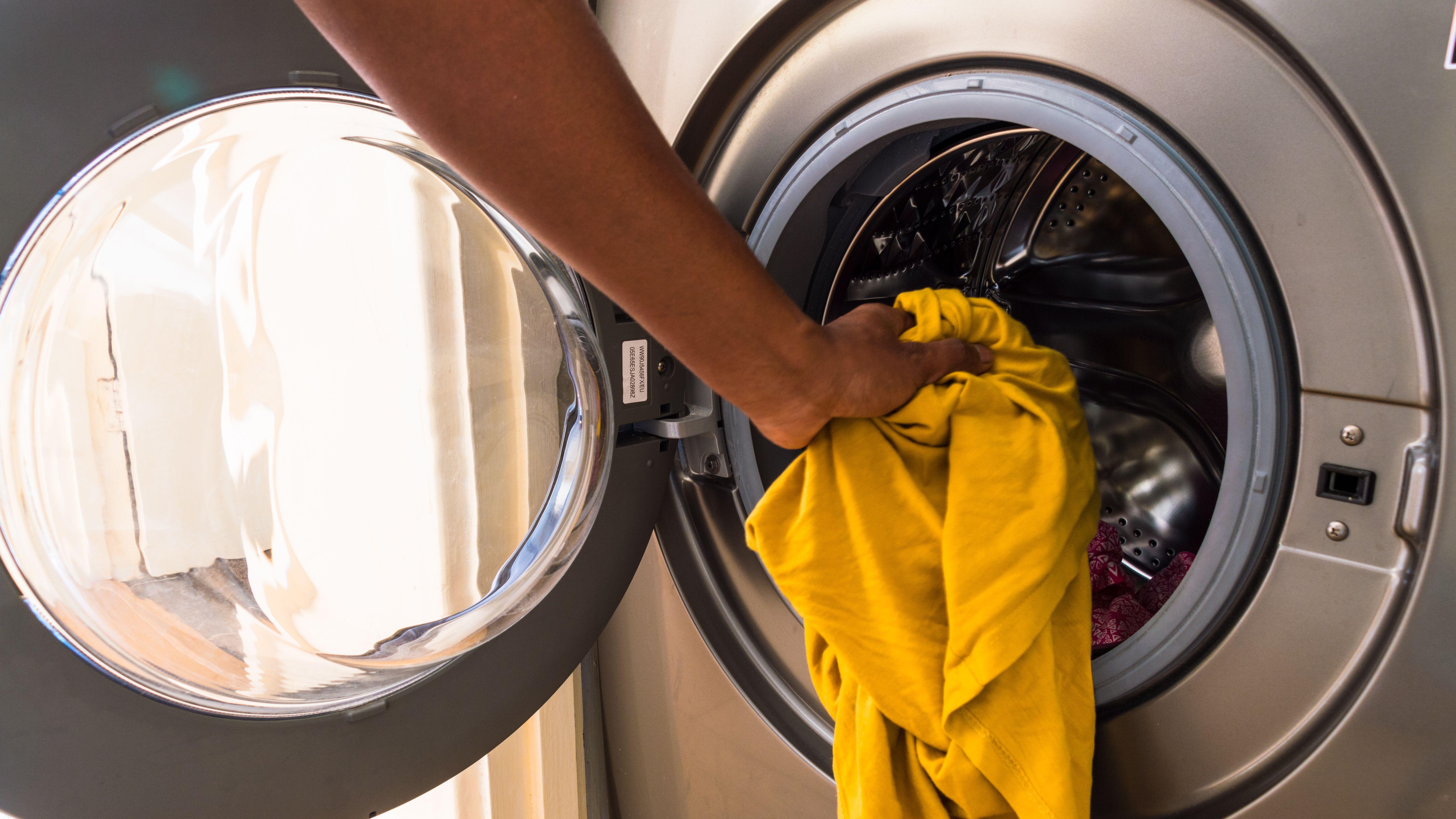
How much detergent should you use in a washing machine? Let's be honest, we're probably all a bit guilty of a 'more-is-more' attitude when it comes to how much we use, irrespective of whether we own one of the best top load washers, the best front load washers or the best washer dryer combo.
It's a common mistake, as Ken Doty, cleaning expert and COO at The Maids, told Top Ten Reviews: "People use too much detergent! It can't be overstated how important it is to make sure you aren't using too much.
"It will help clean more efficiently, save you money and help reduce the environmental impact. It can also prolong the life of your clothes AND washing machine."
"Plus, excessive detergent can actually make clothes smell musty over time as it can create a breeding ground for bacteria. Your washer can also suffer from too much detergent in the form of buildup, mold growth and damage to the inner components. This can sometimes even lead to dirt being redeposited onto your clothing."
To help you understand how much detergent to use, we've called in more advise from Doty, plus more experts, more more details.
How much detergent should I use in a washing machine?
"If the wash is regular, standard machines should use about one tablespoon of detergent," Daniel Feliciano, co-founder and CEO of Clotheslyne, told Top Ten Reviews. This rule applies for both liquid and powder detergent, and when it comes to pods or tablets, one is usually be enough.
"Regular washing machines may need two tablespoons," says Feliciano. "Adjust the amount based on the load size (different size washing machines have different load capacities), water hardness, and dirtiness of the laundry. Referring to the detergent manufacturer is always the best bet."
But this general rule for detergent use changes if you have really dirty clothes to wash, says Feliciano: "Dirtier clothes typically require slightly more detergent. Avoid overuse so that the laundered clothes have no extra suds.
"Instead of adding extra detergent, consider pre-soaking heavily soiled clothing or using the recommended amount for a full load, even if washing fewer items."
If you have a very new washing machine, it may need something known as high-efficiency (HE) laundry soap, which is specially formulated to prevent too many suds. If you do not use HE laundry detergent in your newer washer, then ideally you need to reduce the amount that you use by about one-third of the detergent’s recommendation.
"Brands often don't matter," says Doty, "but ensure the right type of detergent (HE vs. standard) and the amount of detergent is important to ensure optimal cleaning and long-term machine effectiveness and lifespan."
What are the different types of detergent?
Feliciano says: "The main types of laundry detergents are liquid, powder and pods or tablets, each with pros and cons. Liquid detergents dissolve quickly in cold water and are great for pre-treating stains. However, they come in plastic bottles, which are not environmentally friendly.
"Powder detergents are cost-effective and most likely packaged in recyclable materials. The drawback is that some may not dissolve well in cold water. Pods and tablets are convenient with the correct measurement. The drawback is that this option is usually more expensive and can pose safety risks to children and pets."

1. Liquid
Liquid detergents, like this Tide Liquid Laundry Detergent, Refreshing Breeze, 168 oz for $13.94 from Amazon, are the better option for treating tough stains, and measuring the detergent out for specific needs is possible, recommends Feliciano. "Liquid detergents are less likely to leave residue and can work with almost all water temperatures.
"They are also more cost-effective and adaptable for all situations," says Feliciano.
Doty says: "Liquid detergent dissolves easily in every water temperature setting on washers. Downsides include being potentially very messy, and they come in non-eco friendly plastic containers."
2. Powder
Doty says: "Powder detergent are often cheaper, and are considered best for loads that don't require extra action, such as stains. Powder packaging is often cardboard, making them easy to recycle and less environmentally taxing than the plastic liquid cases.
"But one big downside to powder is that it doesn't dissolve as easily in colder water."
3. Pods / tablets
Pods and tablets are the more convenient option with pre-measured amounts, says Feliciano. "They are also great for beginners and storage."
Doty adds: "Pods/tablets are very convenient, but are often cost-heavy and come in wasteful plastic packaging. They also have issues fully dissolving in cold water, and can ruin clothing if they dissolve on your shirts."

How much detergent to use in a washing machine?: FAQs
Should you spend more on detergent to get better results?
Expensive detergents are sometimes better, and they often have better ingredients, says Feliciano.
"Pricier detergents clean tough stains better and are gentler on clothes. Cheap detergents are great for everyday laundry loads that are not especially dirty. Always choose based on what you need, your budget, and what's most important - like getting out stains, making clothes last longer, or saving money."
Doty adds: "More expensive detergents can have stain-fighting enzymes and ingredients, but that doesn't always guarantee more effectiveness. The real key is to use the correct amount of detergent and pre-treat stains and extra dirty clothing items before washing as opposed to relying on a more expensive detergent."
What detergent should you use for sensitive skin and/or children?
Feliciano told Top Ten Reviews: "Choose a hypoallergenic detergent free from fragrances, dyes and harsh chemicals for sensitive skin, babies and children. In the grocery aisles, sensitive skin and detergents for babies and children are typically labeled with dermatologist or pediatrician recommendations."
Can you put too much detergent in your machine?
"Too much detergent can harm clothes and washing machines," warns Feliciano. "Excess detergent can leave residue on clothes, reduce cleaning efficiency, and damage fabrics. It can also cause excess suds, clog the machine, and strain the machine unnecessarily, leading to mechanical issues and decreased performance.
"Too much detergent can also make clothes smell icky due to residue build-up. Too much detergent may not rinse out, leaving a musty smell on clothes even after washing."







